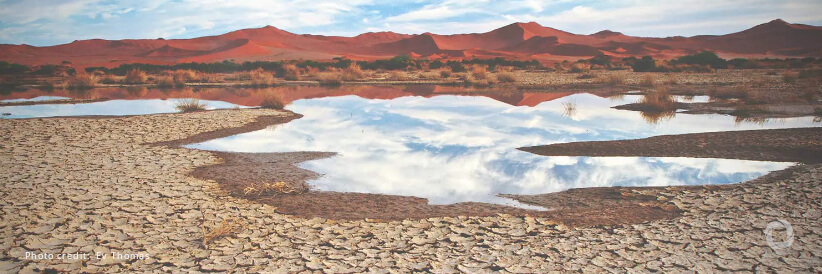With mounting pressures on water from rising consumption demands, increased pollution, and climate change, world leaders, civil society, businesses, youth, and other stakeholders are gathering at the UN 2023 Water Conference from 22 to 24 March at the UN Headquarters in New York to make bold commitments to address the global water crisis.
“This is more than a conference on water. It is a conference on the world seen from the perspective of its most important resource,” said United Nations Secretary-General António Guterres in his opening remarks. “This conference must represent a quantum leap in the capacity of Member States and the international community to recognize and act upon the vital importance of water to our world’s sustainability and as a tool to foster peace and international co-operation.”
Access to safe water, sanitation, and hygiene is the most basic human need for health and well-being and a declared human right. But some 2 billion people around the world still lack access to safe drinking water. More people have access to mobile phones than toilets and sanitation, with 80 per cent of wastewater discharged untreated into the environment. More than 90 per cent of disasters are water-related, with climate change adding to the pressure. And humanity’s demand for water keeps growing, with pressure on freshwater projected to increase by more than 40 per cent by 2050.
Despite these challenges, a breakthrough to a water-secure planet is still possible. But urgent action is needed now. With this at the top of their minds, world leaders, together with over 6,000 registered civil society, business leaders, young people, and experts are attending the three-day Conference to present innovative solutions and bold commitments to accelerate transformational change for water. Coming from all sectors, the Conference is an opportunity to unite the global community around a common goal and trigger real action.
“During this conference, we want to get the water wheel spinning,” stated His Highness Willem-Alexander, the King of the Netherlands in his opening statement. “We won’t rest until water is given the place it rightly deserves on global agendas and policy programs. We will bring all our commitments, pledges, and actions together in a Water Action Agenda.”
The key outcome of the UN 2023 Water Conference will be the Water Action Agenda, a collection of commitments from Member States and other stakeholders that aims to present game-changing solutions to accelerate progress on SDG 6. To date, more than 500 commitments have been registered from Governments, UN agencies, business leaders, and civil society, ranging from targeting open data sources and improving education around water to scaling effective water management practices and mobilizing funds to drive action toward the water.
About the Conference
Co-hosted by the Kingdom of the Netherlands and the Republic of Tajikistan, the Conference is a once-in-a-generation opportunity to advance the Water Action Agenda that seeks to deliver the internationally agreed water-related goals and targets, including those contained in the 2030 Agenda for Sustainable Development.
In addition to the plenary sessions, there will be five interactive dialogues: 1) Water for Health; 2) Water for Sustainable Development; 3) Water for Climate, Resilience, and Environment; 4) Water for Cooperation, and 5) Water Action Decade. Four high-level special events and more than 500 side events will also be occurring during the Conference.
Water – a dealmaker for cooperation and the implementation of the SDGs
Water is fundamental to the Sustainable Development Goals (SDGs). Safe water and adequate sanitation for all – SDG 6 – are indispensable to support the achievement of all SDGs as they underpin poverty reduction, good health, economic growth, and sustainable ecosystems.
While there are great challenges, solutions are possible as water management is key to building a green economy, climate resilience, and a more sustainable and inclusive world for all. Science, financial resources, and innovative solutions are available to address the water crisis. The Conference will be a key moment to advance those solutions and generate the political will to fast-track progress and action on SDG 6 goals and targets.
“We need to think about how we value water. We must consider both the role and impact of water in driving sustainable economic and social development, urban development, environmental protection, and peace. A close look at the water-energy-food nexus is also critical,” said UN Under-Secretary-General for Economic and Social Affairs and Conference Secretary-General, Li Junhua in his address at the opening.

